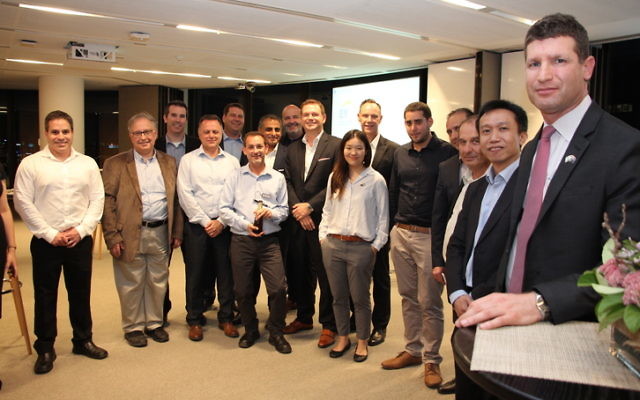Israeli cyber roadshow in town
AUSTRALIA'S need for cyber-security technology has never been higher, but while the sector is in its infancy domestically, the State of Israel is an established player and world leader, home to 420 cybersecurity firms, 30 multi-national research and development centres and some 16 per cent of worldwide cybersecurity investment.

AUSTRALIA’S need for cyber-security technology has never been higher, but while the sector is in its infancy domestically, the State of Israel is an established player and world leader, home to 420 cybersecurity firms, 30 multi-national research and development centres and some 16 per cent of worldwide cybersecurity investment.
The good news for Australia is many Israeli companies at the cutting edge of cyber-tech development are looking to explore the Australian market and potential business partnerships.
Twelve of the most innovative firms arrived in Australia from Tel Aviv last week for a ‘Cyber Roadshow’ tour, as guests of the Israel Trade Commission, in co-operation with the Australia-Israel Chamber of Commerce and Israel Export Institute.
The AJN spoke to representatives from three of them at a launch event at Ernst and Young’s Sydney headquarters.
Stuart Fisher from Deep Instinct said the Israeli company is the first to apply to use artificial intelligence (AI) and virtual ‘neural network’ technologies to protect businesses from the most advanced cyberattack attempts using fully-automated responses.
“What this does is enable us to detect even unknown malware attacks with an error rate of only 0.01 per cent in real time,” Fisher said.
“This level of efficiency is so important, because today there are 2.1 million malware hits per year, but this is forecast to grow to more than 3 million hits in the next few years.
“The use of AI in cyber defence is on the rise, and when you think of AI today, you think of Tel Aviv.”
Cyberbit, a subsidiary of Elbit Systems, specialises in developing battle-hardened cyber-security solutions and its director of cyber systems in Australia, Philippa Wyrdeman, said its current focus is providing cyber-security training programs.
“We are seeing a massive cyber-security skills shortage in Australia, which, if continued, will lead to 11,000 jobs in this field being unfilled,” Wyrdeman said.
“It’s going to be a continuous challenge, and training is the key.
“The challenge we face is getting everyone into the mindset not to be frightened by cyber-security, but to see the opportunities it offers.”
Senior Scientist Dr Nathan Weiss from Elta Systems – a subsidiary of Israel Aerospace Industries – said the company employs more than 15,000 people in Israel who are leading experts in their fields, and its cyber-sector arm has more than 100 staff and is experiencing rapid growth.
“Israel is a very big player in cyber-security, but when you are looking to enter new markets like Australia, you need to find local partners, and that’s a big part of why we’re here.”
SHANE DESIATNIK

comments